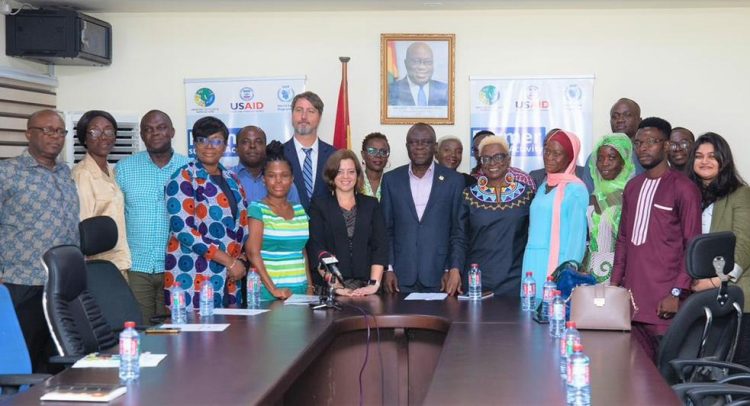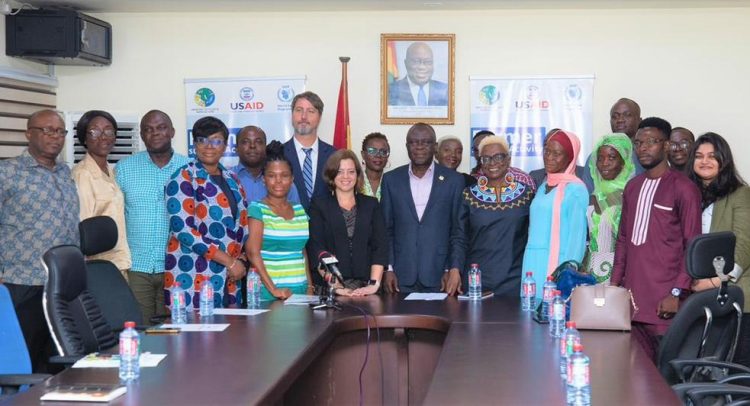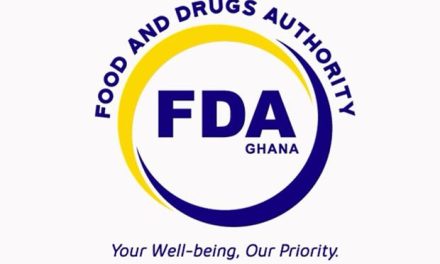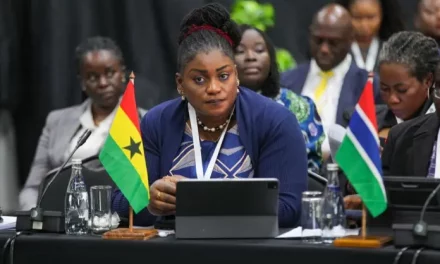
MoFA, USAID, WFP Launch $7m Farmer Support Programme3 min read


Deputy Minister for Food and Agriculture, Yaw Frimpong Addo (middle) in a pose with officials from USAID and WFP as well as some of the selected farmers
The Ministry for Food and Agriculture (MoFA), in collaboration with the United States Agency for International Development (USAID) and the World Food Program (WFP), has launched a $7 million support program for local smallholder farmers.
Dubbed the ‘Farmer Support Activity’, the USAID-funded program is aimed at reinforcing the resilience, preserving agricultural productivity, and enhancing the awareness and capacity of smallholder farmers on good agronomic practices in the country.
Under this project, some 17,000 productive smallholder farmers, drawn from 163 communities in 17 districts in the Northern, North-East, Upper East and Upper West regions, would each receive a total cash transfer of GHC3,499.65 (USD 315) via mobile money over a three-month period – June to August 2023 to assist them in their work.
At a brief ceremony in Accra to launch the program, the Deputy Minister for Food and Agriculture (in charge of crops), Yaw Frimpong Addo, intimated that food inflation was one of the leading forces influencing the high inflation figures being experienced in the country at the moment and that the lack of working capital for smallholder farmers in Ghana was a huge holdback that prevented them from reaching the full potentials.
With this programme, therefore, farmers would receive funds directly on their phones which he indicated, would help them enhance their food production, reduce inflation figures and also go a long way to increase the country’s food basket.
“All that is needed is to ensure that the programme is being monitored to see its success. I also urge the beneficiaries to prove to the donors that this money is not for personal use but rather, for productivity,” Mr Addo admonished.
WFP Representative and Country Director, Barbara Clemens, said the program would also help farmers to mitigate the risk of shocks and loss of productive assets due to high input prices caused by high inflation.
Without an enabling support like this, she opined, farmers are at risk of losing their productive assets; and/or adopting negative coping mechanisms such as reducing the land space they cultivate on or inputs they buy, as well as the quality and quantity of their household meals.
Beneficiary farmers will therefore use the cash transfers to purchase the inputs and food they need as and when they need them.
“WFP is exploring opportunities to leverage GIS technology (satellite imagery and remote sensing), to monitor crop types, trends, and patterns of productivity of the targeted farmers, to inform impact”, she added.
On her part, Kimberly Rosen, Mission Director for USAID Ghana stated that the program also aims at enhancing the awareness and capacity of smallholder farmers on good agricultural practices to improve their agricultural productivity and competitiveness.
Strong sensitization and awareness raising, she emphasized, were integral and incorporated in the project to ensure that the beneficiaries are well informed as to why they were selected and on how to wisely invest the funds into agricultural production to boost their output and reduce postharvest losses.
Other partners on the project include MTN, African Fertilizer and Agribusiness Partnership (AFAP), ACDI-VOCA, and several others partners.


















